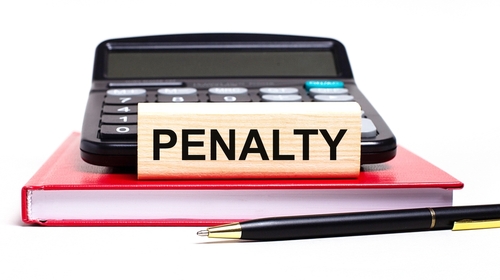Recap of CMS Section 111 Penalties Webinar
January 23, 2024

On January 18, 2024, the Centers for Medicare and Medicaid Services (CMS) held a Section 111 Civil Monetary Penalties webinar to provide important information on timelines, non-compliance definitions and safe harbors associated with the rule.
A copy of a screenshot of the webinar slides can be found here.
Some key points made during the webinar:
-
-
- October 11, 2024, is the Final Rule applicability date that starts the 365-day clock. From October 11, 2024 on, CMS expects records to be submitted in a timely manner.
- On April 1, 2026, CMS will begin quarterly compliance audits by reviewing a random sample of new RRE records added since January 1, 2026.
- To determine compliance, CMS will compare the date a TPOC record is accepted against the date CMS should have received the record. CMS provided several examples of compliance vs. non-compliance in the slides.
- CMS will randomly select 250 new and accepted records per quarter to audit. These will be divided between group health and non-group health records.
- Both Section 111 and self-reported submissions will be included in the audit. CMS emphasized that it will review other reporting methods to determine if there has been a failure to report, not just late reporting through Section 111.
- TPOC and ORM are considered separate reporting obligations for purposes of audits and penalties.
- A record must be reported and accepted to meet the rule’s timeliness requirement. For example, if a report is made without a diagnosis code, it will not be considered accepted.
- The rule is prospective only – it does not consider retroactive reporting. This is an important point. TPOC and ORM dates prior to October 11, 2024, which are reported more than 365 days after when they should have been reported, will not be subject to penalties.
- The rule in no way changes reporting requirements.
- The Informal Notice of a potential penalty will be emailed to the RRE’s Authorized Representative and the Account Manager.
- Within 30 days of receipt of the Informal Notice, the RRE must respond with mitigating factors to CMS imposing a penalty.
- A Formal Notice to Impose a CMP will be sent to the Authorized Representative by certified mail. The RRE will then have access to the appeals process.
- As previously explained, there is a tiered approach to penalties. That is, penalties increase when the report is more than one year, two years, and then three years late. These are inflation-adjusted with the 2024 rates:
-
$1,000 (after three years late) = $1,428 /per day
$500 (after two years late) = $714/per day
$250 (after one year late) = $357/per day
-
-
- CMS will update the NGHP User Guide in the near future to incorporate the CMP rule.
-
Tower will update you as CMS implements the penalty rule over the next two years.
Prior Tower articles: CMS Section 111 Penalties Rule Focuses on Untimely Reporting and CMS Releases FAQs on Section 111 Penalties

